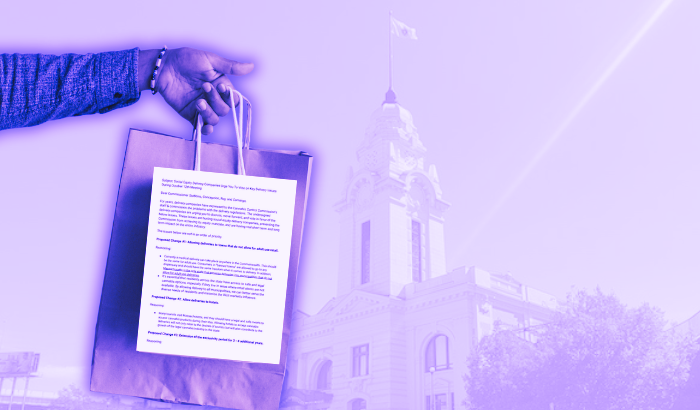
Black Economic Council of Massachusetts and Equitable Opportunities Now challenge “burdensome” delivery regulations
Talking Joints Memo has thoroughly covered the initiative taken by Massachusetts cannabis delivery operators to change demonstrably unnecessary regulations that impact their bottom line and ability to succeed. We will continue that coverage at the Cannabis Control Commission’s meeting this Thursday, where regulators are expected to address some of these issues. In the meantime, the Black Economic Council of Massachusetts and Equitable Opportunities Now released a public letter they wrote to commissioners ahead of that meeting. Their summary can be found below. -TJM Editors
Two nonprofits focused on increasing access to equitable economic opportunity for Black and Brown communities are teaming up to urge cannabis regulators to loosen regulations they say are hindering cannabis delivery operators in Massachusetts in advance of the Cannabis Control Commission’s Dec. 14 public meeting where the issue is expected to be addressed.
For a minimum of three years, delivery licenses are exclusively available to businesses controlled by, and with majority ownership comprised of, Certified Economic Empowerment Priority Applicants or Social Equity Program Participants. Under the Commission’s current regulations, the exclusivity period begins in February 2023 when the first Marijuana Delivery Operator received a notice to commence operations.
Leaders from the Black Economic Council of Massachusetts (BECMA) and Equitable Opportunities Now (EON) are urging the Cannabis Control Commission (CCC) to address a half dozen rules they say are holding the industry back and to extend that exclusivity period so that entrepreneurs from disparately harmed communities by the war on drugs.
According to their letter, the groups are urging the CCC to implement the following regulatory changes as soon as possible “to unlock the potential of these important license types:
- Remove the two-agent rule to enable licensees to make the best decision for their business and their workers without a one-size-fits-all mandate
- Align license cap limit with other license types by increasing the cap from two to three
- Allow repackaging to unlock additional economic and innovative opportunities while maintaining public health and safety
- Support normalization of the industry, innovation, and potential partnerships by eliminating the unnecessarily burdensome prohibition on delivery to hotels
- Remove the excessively restrictive and burdensome prohibition on delivery to towns that prohibit adult-use retail dispensaries to enable consumer access and economic opportunity
- Most importantly: Help undo the harm that the CCC’s overly restrictive regulations have imposed on applicants and licensees whose participation in the industry the agency sought to promote by resetting the clock on the exclusivity period, extending it to seven years to allow adequate time to address future issues, and aligning it with the forthcoming social consumption exclusivity period.”
Cannabis Control Commissioners have discussed possible changes to cannabis delivery regulations at several previous public meetings and are anticipated to resume those discussions at their next public meeting on Dec. 14.
























